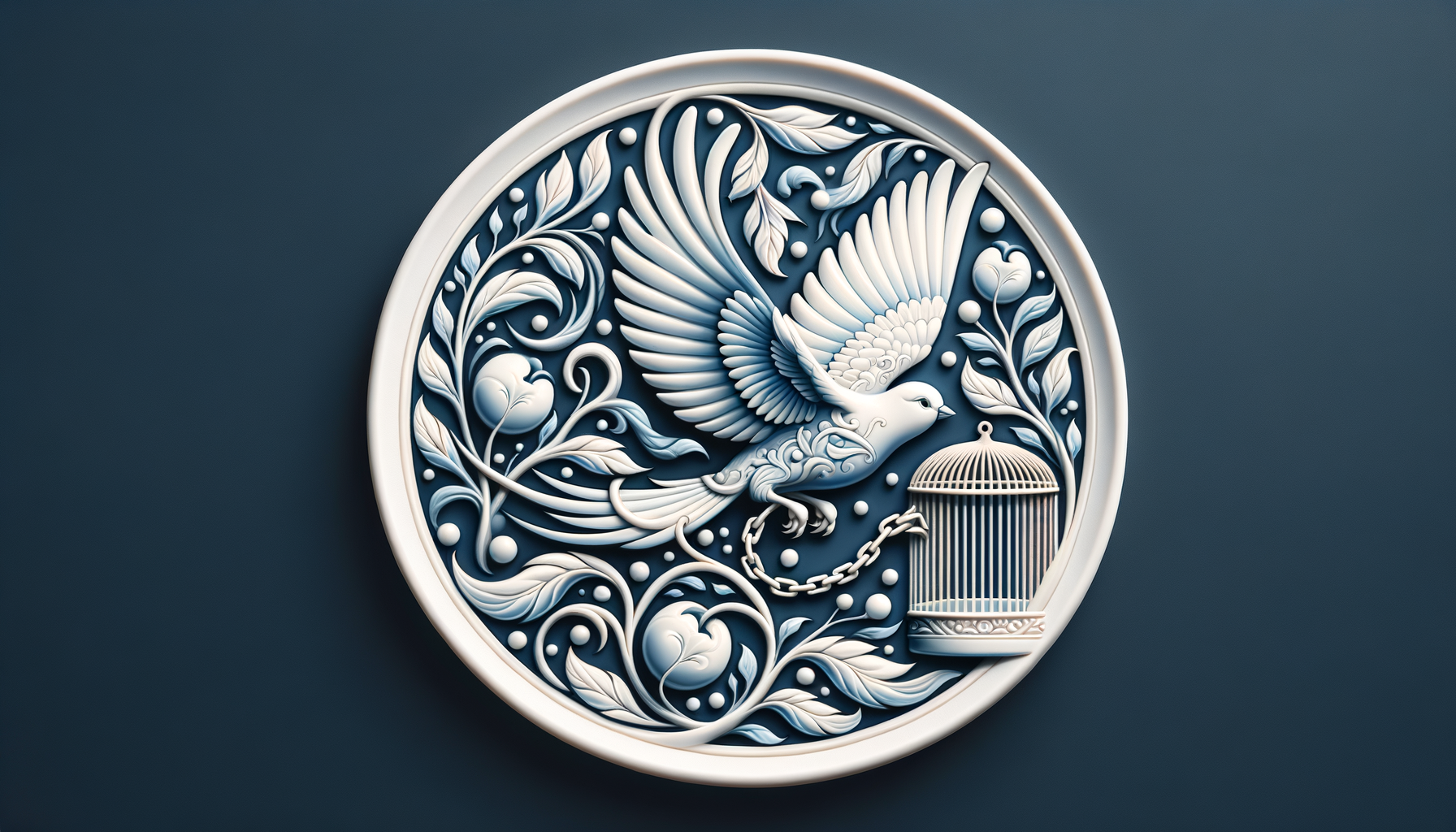I still remember the first time I walked into a college art history lecture room as a guest speaker. I’d been asked to talk about Savannah’s preservation efforts, a topic I knew like the back of my hand. Yet, as I looked out at a sea of expectant young minds, all I could think was, “Who am I to stand here? Any minute now, someone is going to realize I don’t belong.” That gnawing sense of self-doubt had me clinging to the podium for dear life—like Rose holding onto that door at the end of Titanic. Only, unlike Rose, I wasn’t letting go.
Impostor syndrome can be the uninvited party guest of your life: it shows up unannounced, drinks all your self-confidence, and leaves you questioning every success you’ve ever had. This feeling isn’t unique, and if you’ve ever felt like an impostor in work, relationships, or your passion projects, let me assure you, you are not alone. The question is: how do you go from being stuck in the headspace of “I don’t belong here” to fully owning your expertise?
My journey from panic-stricken fraud to self-assured guide didn’t happen overnight—and neither will yours. But it’s doable. Here’s how I made peace with being enough, and how you can too.
Recognizing You’re Not Alone
First things first, let’s bust a myth wide open: you’re not the only one who feels like you’re winging it. Studies show that up to 70% of people have experienced impostor syndrome at some point in their lives. Yep, that includes high-powered CEOs, award-winning artists, and even actors who've just won Oscars (looking at you, Olivia Colman).
When I first became a writer, I assumed that anyone who wrote professionally walked around brimming with unshakable confidence. As it turns out, writers are some of the most self-doubting people you’ll ever meet. That revelation was like discovering that even the seemingly perfect Southern belle down the street throws on yoga pants and skips makeup on bad days. It doesn’t make her any less poised or charismatic—just human.
The real epiphany came during a casual coffee shop chat with another writer. She, with at least 20 glowing bylines to my two, was lamenting her inability to take herself seriously. Hearing her share something so vulnerable put me at ease. It also made me realize: impostor syndrome doesn’t discriminate. It preys on anyone willing to listen to that nagging little voice of doubt.
Fake It Till You Believe It
Now, I know this sounds like tired advice. But hear me out: there’s power in pretending—not to be someone you’re not, but to temporarily silence that nagging voice of self-doubt while you build actual confidence. Here's the trick: act like the version of yourself you’re aspiring to be.
When I took up my first consulting gig on Savannah’s architectural history, I was daunted. For as much as I researched and prepared, I couldn’t shake the feeling that I would say the wrong thing or someone would call me out for not being “expert enough.” Here’s what I did: I wore my favorite crisp linen blazer, leaned into my Savannah drawl (just a hair), and treated the conversation like I would a casual chat about something I loved. I channeled every docent I admired from my historic home tour days and found that, even if I didn’t feel qualified, I sounded like I knew exactly what I was doing. By the end of the day, I started to believe it myself.
This doesn’t mean you lie or break out the blazers every day, but adopting the habits, poise, and empathy of someone you admire can help create a feedback loop of confidence.
Make Peace with Mistakes
When I was younger, I treated mistakes the way Southern grannies treat thunderstorms—something to sit very quietly through and hope they’d pass unnoticed. But if you’re going to grow into your own authority, mistakes must be seen as detours, not derailments. Every error is a reminder that you’re learning, not failing.
One of my more humbling early experiences? Confidently naming a ceiling medallion on a historic tour as “Renaissance-inspired” in front of a group of esteemed preservationists…only to have a guest gently inform me it was Victorian Gothic. I wanted to sink beneath the heart pine floors and disappear. But instead, I swallowed my pride, corrected myself, and—get this—found that no one was clutching their pearls in judgment. In fact, the group moved on with no hesitation.
That moment was cathartic, and it allowed me to break free from the idea that expertise means never being wrong. Expertise is about learning, unlearning, growing, and being humble enough to admit when you’re off the mark.
Own Your Wins
One of the sneakiest aspects of impostor syndrome is its knack for diminishing your achievements. If you’ve ever thought, “I just got lucky” when complimented on a success, you know what I mean. But the truth is, your wins aren’t the accidental result of cosmic luck—they’re the product of your skills, perseverance, and hard work.
Here’s an exercise I adopted from a mentor: keep a “win list.” Write down every achievement, big or small, that you’re proud of. That time you nailed a tough project, delivered a presentation that wowed the room, or finally broke through to your partner during a tough conversation—whatever it is, log it. Over time, you’ll build a tangible reminder that you have what it takes.
When I was deep into writing my novel, I’d often feel like the words weren’t good enough. I’d dwell on the sentences I couldn’t seem to wrangle and lose sight of the ones I’d crafted beautifully. That win list came in clutch on more occasions than I can count. Whenever I doubted myself, I’d skim through it and remember exactly why I could do this.
Build a Support System
No one grows into their best self in a vacuum—it takes a village, even if only a small one. Surround yourself with people who see your potential, celebrate your successes, and laugh with you through the failures. Whether you call them mentors, colleagues, or your chosen family, these folks are the foundation of your confidence.
For me, my sister Maren has always been my go-to cheerleader and reality check. She was the one who told me, “Celeste, nobody cares about your syllabus; they care about how you make them feel during the lecture.” That nugget of wisdom became my north star as I built my career.
And don’t forget, being part of others’ support systems is just as rewarding. When you uplift the people in your life, they’ll reflect that energy back to you.
The Bottom Line: You’re Never “Done”
Here’s the real kicker about impostor syndrome: it doesn’t magically disappear. Every new challenge or step outside your comfort zone can trigger those feelings. But that’s not necessarily a bad thing. If you’re feeling doubt, it means you're growing.
These days, the self-doubt monster still rears its head occasionally, but I’ve learned how to manage it with grace (and, okay, the occasional glass of bourbon). I remind myself of this: expertise isn’t a finish line, and embracing uncertainty is part of the process.
So, next time you feel like an impostor, take a breath and stand tall. Your journey is just as valid as anyone else’s. You’ve got this—and I’ll be over here, cheering you on.




















